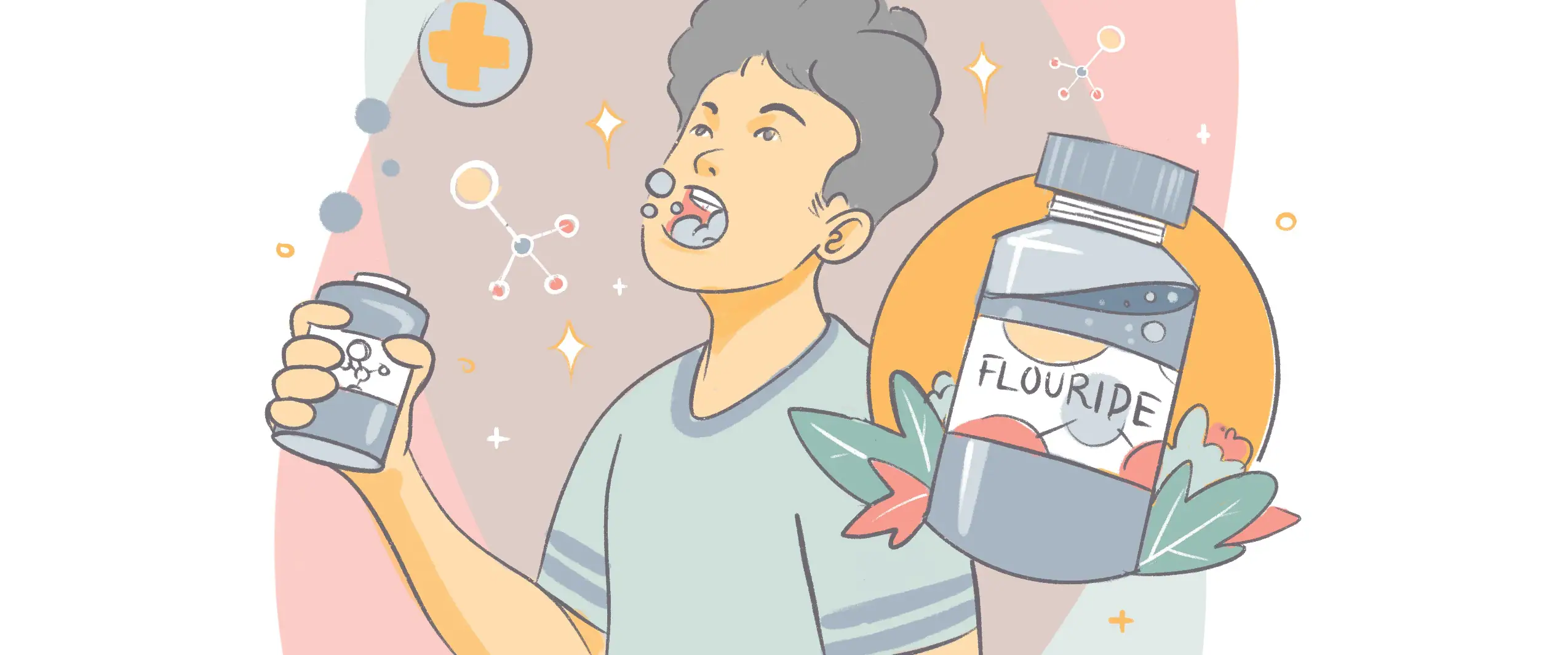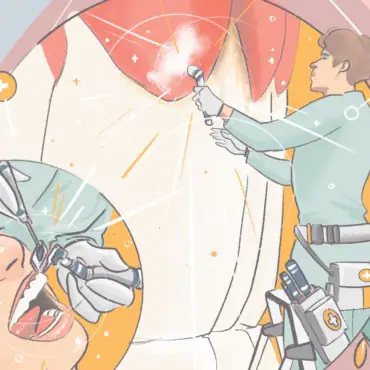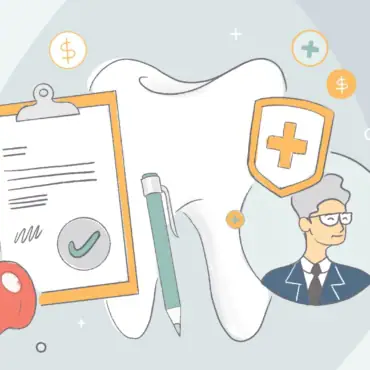What is tooth enamel?
Tooth enamel is the thin outermost layer of your teeth – and the hardest tissue in the human body. Tooth enamel is mainly made up of one mineral called hydroxyapatite. Although enamel can vary in color from light yellow to gray or even blueish-white, it’s semi-translucent and only partially responsible for the color of your teeth. If enamel is destroyed the body cannot reproduce it, since it contains no living cells. Once it’s gone, it’s gone.
What does tooth enamel do?
Tooth enamel plays a big role in protecting our teeth from decay. It also helps protect them from wear and tear caused by daily activities like chewing, biting, and grinding.
Enamel forms a substantial barrier to safeguard the teeth’s inner layers like dentin, pulp, blood vessels, and nerves. It helps protect these interior structures from acids and plaque, as well as hot and cold foods and drinks. Enamel loss can expose the inner layers of the teeth and damage them.
How do I know my enamel is eroding?
It can be hard to tell when your enamel is eroding. Here are some basic signs to look for.
- Colour
If you’re noticing a change in the color of your teeth, you may have enamel erosion. Look for a yellow or shiny layer on the tooth surface.
- Increased sensitivity & pain
One of the most ignored symptoms of enamel loss is increased tooth sensitivity, which can lead to pain. Does it hurt when you’re eating cold, hot, or sugary foods or drinks? If it really hurts, you may be in a later stage of enamel erosion.
- Roughness
Roughness around the edges of the teeth, as well as cracks, chips, or indentations, can all signal early-stage enamel loss.
- Transparency
Erosion can cause the teeth to look transparent near the edges where you bite.
- Shiny spots
Shiny spots can be another early sign of enamel loss. If your teeth have shiny spots, then you are experiencing the early stages of enamel erosion.
Due for a checkup?
Find a top rated dentist near you that takes your insurance.
For reference, here are some pictures of teeth without enamel.
What causes enamel erosion?
Enamel erosion is typically caused by the acids that are found in the foods and drinks we consume. Normally, the saliva in your mouth neutralizes the acid. However, if you eat or drink lots of acidic things – or frequently neglect brushing – your enamel will erode over time. It’s not a matter of if, but when.
If you want to be conscious about the acidic foods and drinks you’re taking in, keep the following in moderation: soft drinks; sugary foods like ice cream, syrup, caramel; starchy foods like white bread and cake and fruit juices (hello erosion city!).
Since saliva helps neutralize the effects of acids, dry mouth can also result in enamal erosion. Regular use of certain medications will contribute to dry mouth, and in turn, erosion. These include antihistamines and Aspirin.
Frequent teeth-grinding (bruxism) will obviously wear down the enamel, as will acid reflux caused by gastroesophageal reflux disease and bulimia – both of which cause stomach acid to reach the mouth.
- Acid reflux, also known as gastroesophageal reflux disease (GERD), can cause enamel loss. Bulimia, an eating disorder that involves vomiting up food, also can damage enamel. In both cases, the problem is stomach acid reaching the mouth and impacting the teeth.
What’s done is done; you can’t get enamel back. It’s important to take preventative measures before enamel loss occurs in order to protect your smile. Our next section will focus on how you can avoid enamel erosion.
How do you prevent enamel loss?
Thankfully, there are loads of preemptive measures you can take to avoid enamel loss. In addition to brushing and flossing regularly, and seeing your dentist, of course, here are some other steps you can take.
- Cut down on the sweet stuff!
It literally bears repeating. Sugar feeds the bacteria in your mouth, which then form acids that wear away enamel. So limit your intake. A good starting point is to reduce the amount of added sugars in your diet and stick to whole-food sources, like a piece of fruit.
- Chew gum after meals
Chewing gum cranks up saliva flow and helps wash away acids. Opt for a sugar-free gum after you eat and chew for a good half hour to get the juices flowing. Xylitol gum is a great choice, as xylitol has been shown to reduce tooth decay.
- Wait before you brush!
Don’t rush to brush after consuming breakfast, lunch, or dinner. Wait a half hour, ‘cause brushing too soon can contribute to enamel erosion. When you do brush, choose a fluoride toothpaste.
- Finish off your meal with milk
After eating, drink a glass of milk to neutralize some of the acids you might have taken in.
- Drink more water
Keep yourself and your mouth hydrated by drinking more water throughout the day. (That’s just good advice for nearly everything in life.)
Sign up for our newsletter.
Just let us know a bit about yourself.
Can you restore tooth enamel?
If your enamel has already started to erode, don’t give up hope! While you can’t bring back enamel, you can still still slow the damage. You can help fortify enamel by improving its mineral content.
Enamel remineralization
Remineralization is a process used to mineralize the teeth and strengthen enamel. Products with high calcium phosphate or fluoride concentrations help remineralize the enamel naturally before it reaches the point beyond repair. This process only helps in the early stages of erosion. So if your enamel is only slightly weak, you can make the most of the remineralization process. Check out the following home remedies.
- Brush your teeth regularly, of course. This removes the bacteria responsible for erosion. Also be sure to floss twice a day to remove plaque and prevent gum disease.
- Use a fluoride toothpaste to help the process of strengthening your teeth and shut down future mineral loss.
- Take probiotics like salivarius, rhamnosus, or reuteri.
- Lastly, make use of a remineralizing mouthwash twice a day. (This step honestly feels great too.)
If your teeth are beyond benefiting from remineralization, you should book a dentist appointment to discuss your options. These may include veneers, fillings, or even having crowns installed. Each case will be different.
Finding a dentist
It’s important to find a dentist you like and trust. Start with us! Simply enter your address to find and book an appointment with an amazing dentist near you. Plus you can use your dental insurance when you book with Opencare too. So let’s get that erosion under control! Just smile when you think of us.
Due for a checkup?
Find a top rated dentist near you that takes your insurance.








